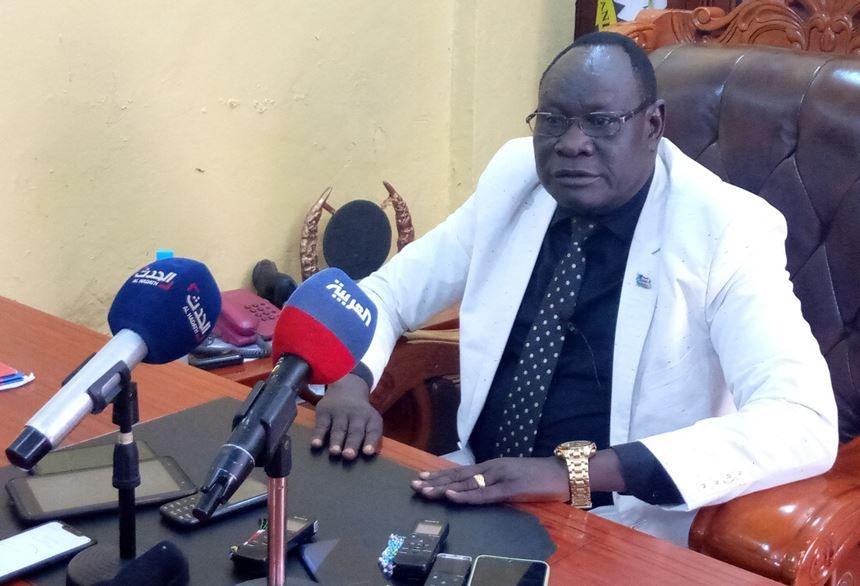Africa-Press – South-Sudan. South Sudan’s business gurus have announced reforms to allow traders to sell goods at reasonable prices.
Addressing the media on Saturday in Juba, Ayii Duang Ayii, President of the South Sudan Business Community and Employer Federation, said they discussed with the neighbouring countries allowing the traders to import goods directly from the factories.
Ayii said they have met with the East Africa Business Council (EABC) and agreed on several issues.
The EABC is a regional apex body that collaborates with East African Community (EAC) institutions, academics, and the business community to unlock economic potential through greater physical access to markets, improved trade environments, and higher corporate competitiveness.
He stated that as an EABC member, his group was able to raise several issues affecting intra-and cross-border trade in South Sudan.
“Our visit to the East Africa Business Council as a business community was very fruitful because we were able to come up with some major accomplishments,” Ayii stressed.
The strategic plans included
“One of them was to find a location in Dar-al-Salaam where transit products from South Sudan could be sold to other nations, and we also promised to exempt any transit commodities from East Africa to South Sudan loaded from that location.”
“The second was that we agreed that any transit commodities heading for South Sudan should be allowed to pass through Dar-Al-Salam for free. The third was that we presented to the East African Business Council, which we, the business community, need to buy directly from factories as part of the East African Community, notably Tanzania,” Mr Ayii stressed.
He hinted that they had notified the East Africa Business Council to contact all East African countries to allow South Sudan to import directly from well-organised companies in the region.
“We discussed and agreed that the business community should acquire it directly from factories at reasonable costs and that it should be carried to the destination as soon as possible so that traders can sell it at low prices once it arrives in the country.”
Ayii said they agreed that any investor entering the country must register with the business community and form alliances with national enterprises.
“It must go through the South Sudan Ministry of Justice and Investment, and it must adhere to international investment legislation to the tune of 51 per cent to 100 per cent, with no outside personnel coming in.
“He said that only technical people or trainers who would train South Sudanese in such areas should stay, adding that once the South Sudanese have mastered the abilities, the trainer should go promptly.”
“We received many complaints from the business council that the major challenges they identified will continue to be challenging to South Sudan if they are not addressed, including poor road networks, overcharging of trucks, delayed traders transiting goods on roads in the name of checking, and mistreatment of businesspeople on the roads,” says the report,” Ayii pointed.
The country’s business leader stated that while the traders wish to deliver items in a short time or even dump and return quickly, these hurdles may require them to spend more than a month.
He said if goods arrive as scheduled, the prices will never be the same.
Ayii said the issues at hand were supposed to be executed for effective change and for establishing an enabling company environment and innovations.
For More News And Analysis About South-Sudan Follow Africa-Press






